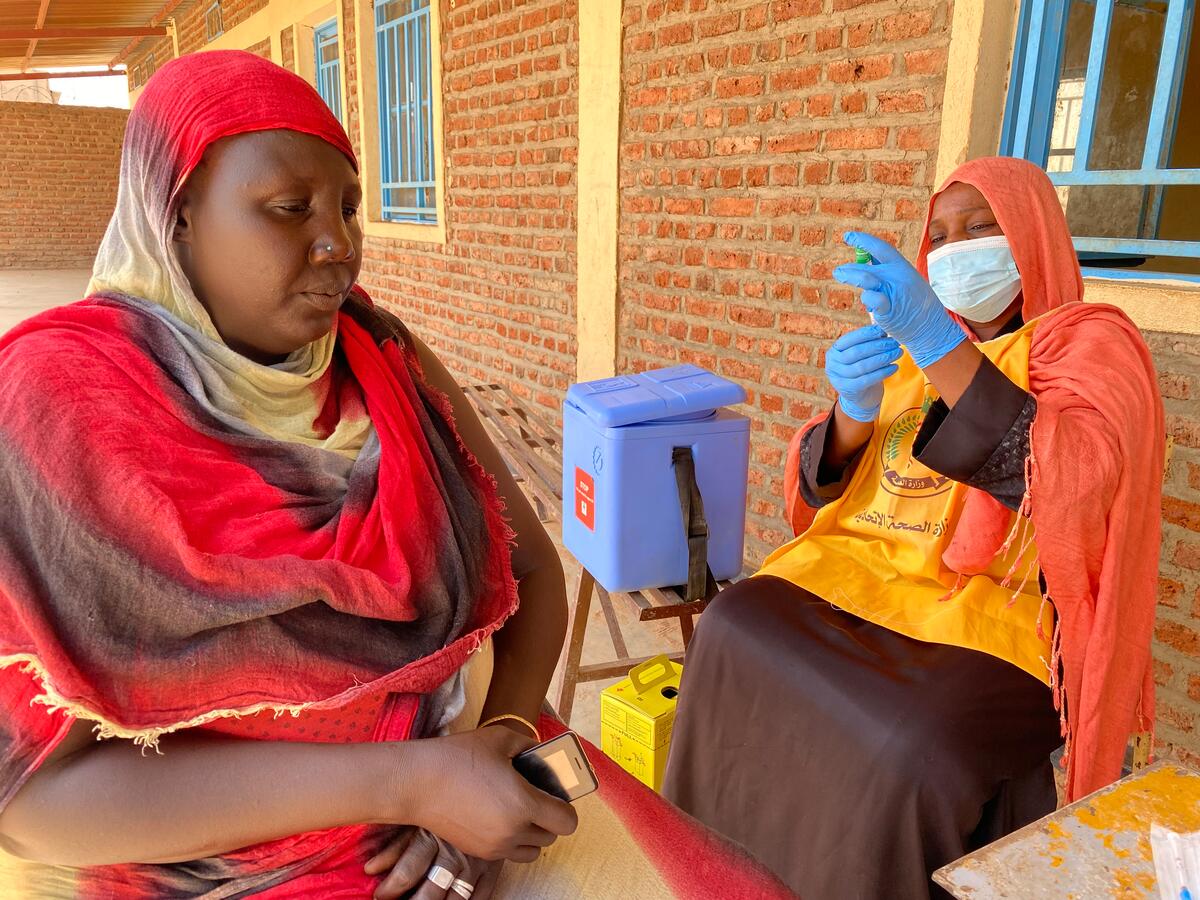Private sector support signals brighter future for refugees in Ghana

Private sector support signals brighter future for refugees in Ghana
When Amos left Cote d’Ivoire for Ghana six years ago, he was unsure what lay ahead. Adjusting to life in exile was difficult as he was unable to find work and take care of his family.
So when he found a job with Consar Ghana Limited, a building and civil engineering company, he was ecstatic.
“I don’t know what would have become of me if I didn’t have this job,” he says happily.
The father of two works as a carpenter at one of Consar’s project sites. He adds that he is able to provide for his wife and children through this job.
“I have something constructive to do and I can feed my family,” he adds.
The support of the private sector in the employment of refugees has opened up opportunities for refugees to contribute to the local economy. Companies like Consar have been engaging refugees for various projects over the past few years in Ghana.
“I have something constructive to do and I can feed my family.”
About 25 refugees are currently employed in various roles in the company. The Project Manager, Ivan Del Monaco sees refugees as capable workers just like anyone else.
“I think they better appreciate the opportunity to work and show a lot more commitment,” he says. “When you get the chance to help somebody, you help them knowing that it will go a long way in making their situation better”.
Del Monaco adds that he has worked with refugees for at least five years without any issues.
“The opportunity to work means they can earn a living. It’s not about giving them handouts,” he adds.
Allen, another refugee employee, works as a surveyor at the company. He is equally happy with the opportunity but expresses worry for other refugees who remain unemployed in the camps.
“We are grateful to have this work but there are many like us who don’t have jobs and it’s not easy,” he says.
Allen’s worries are not unfounded.
Most refugees in Ghana live in the camps - Egyeikrom Camp in the Central Region, Ampain and Krisan Camps in the Western Region and Fetentaa Camp in the Bono Region - located in semi-rural areas where the socio-economic context is already difficult for nationals, with very limited employment opportunities. While the situation presents a challenge for both locals and refugees' survival and empowerment, the environment is generally open to socio-economic integration and inclusion of refugees.
The unemployment situation in the country, particularly among refugees, provided an opportune moment for UNHCR, the UN Refugee Agency, together with other partner agencies to plan an Employment and Entrepreneurship Forum in the capital, Accra. The forum, which took place last August, brought together government partners, private sector stakeholders such as the Association of Ghana Industries and other agencies dealing with labor and employment matters, to find ways of supporting the economic inclusion of refugees.
Esther Kiragu, the UNHCR Representative in Ghana, took the opportunity to reiterate the need for more sustainable support for refugees, in view of the escalating rate of displacement globally.
“We have protracted refugee situations and the length of displacement is getting longer,” she said. “Handouts are no longer sustainable and so, we need everyone’s support to ensure refugees can be self-reliant.”
Christiana Badoo, UNHCR’s Project Manager for Livelihoods, underscored the importance of engaging the private sector and other development actors to find holistic and sustainable solutions.
“Such engagement is critical as the private sector has the capacity to lead us towards multiple avenues for employment in that sector and that will benefit the persons of concern,” she said.
“Handouts are no longer sustainable...we need everyone’s support to ensure refugees can be self-reliant.”
To make further inroads in ensuring refugees can become selfreliant, UNHCR provides skills training to refugees in the camps.
Ivorian refugee Bouhe Gnande Jean Claude is a beneficiary of the skills training programme and has demonstrated that with the right support, refugees can do well in business and contribute to the local economy.
“I am happy to be able to give back to the local community that has hosted me for the past six years,” says Jean Claude, who upon completing his training, used the support from UNHCR to start his tailoring business.
The 37-year-old fashion designer’s shop is conveniently located in the business community in the Central Region of Ghana. His clients range from Ghanaians to Ivorians and Europeans. He has been training both refugees and Ghanaians in fashion and currently has nine Ghanaian apprentices working under him.
“What makes me stand out is the creativity and diversity which I use in my work,” he says happily.
UNHCR and the Ghana Refugee Board’s engagement of the private sector to include refugees in employment is in line with the Global Compact on Refugees, whose key objectives include enhancing refugee self-reliance and calls for responsibility sharing throughout the various sectors in countries, to better protect and assist refugees and support host countries.
Positive strides such as the one’s made by Ghana’s private sector illustrate how including refugees in socioeconomic activities can transform both their lives and their hosts in many parts of the world. They are also essential for inspiring the international community to develop impactful contributions in the future that carry the momentum of the Global Compact forward.
Amos, Allen and Jean Claude can now plan with confidence for the future.
“I would like to open a fashion school in the next few years so I can help train and impact more lives,” says Jean Claude.













